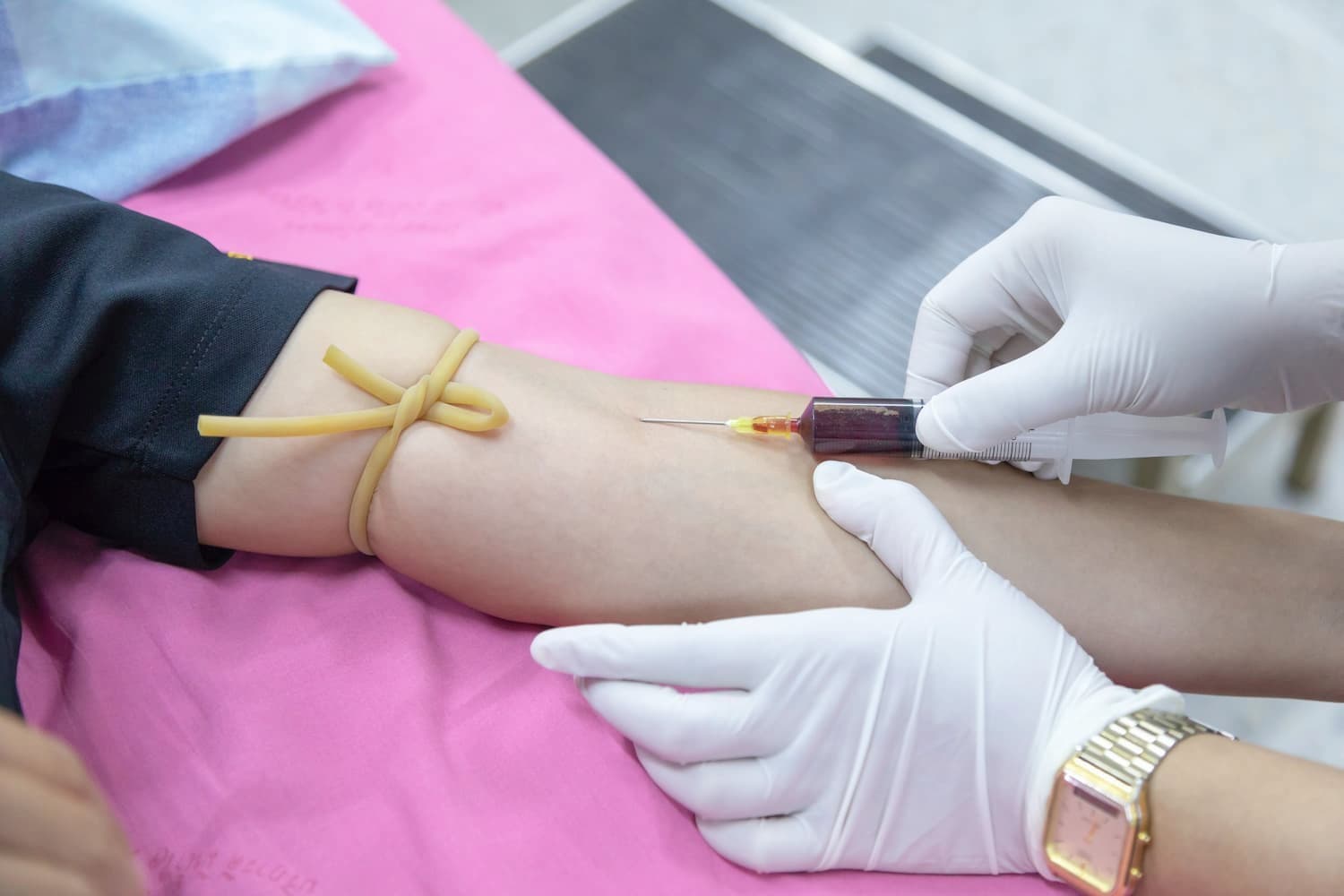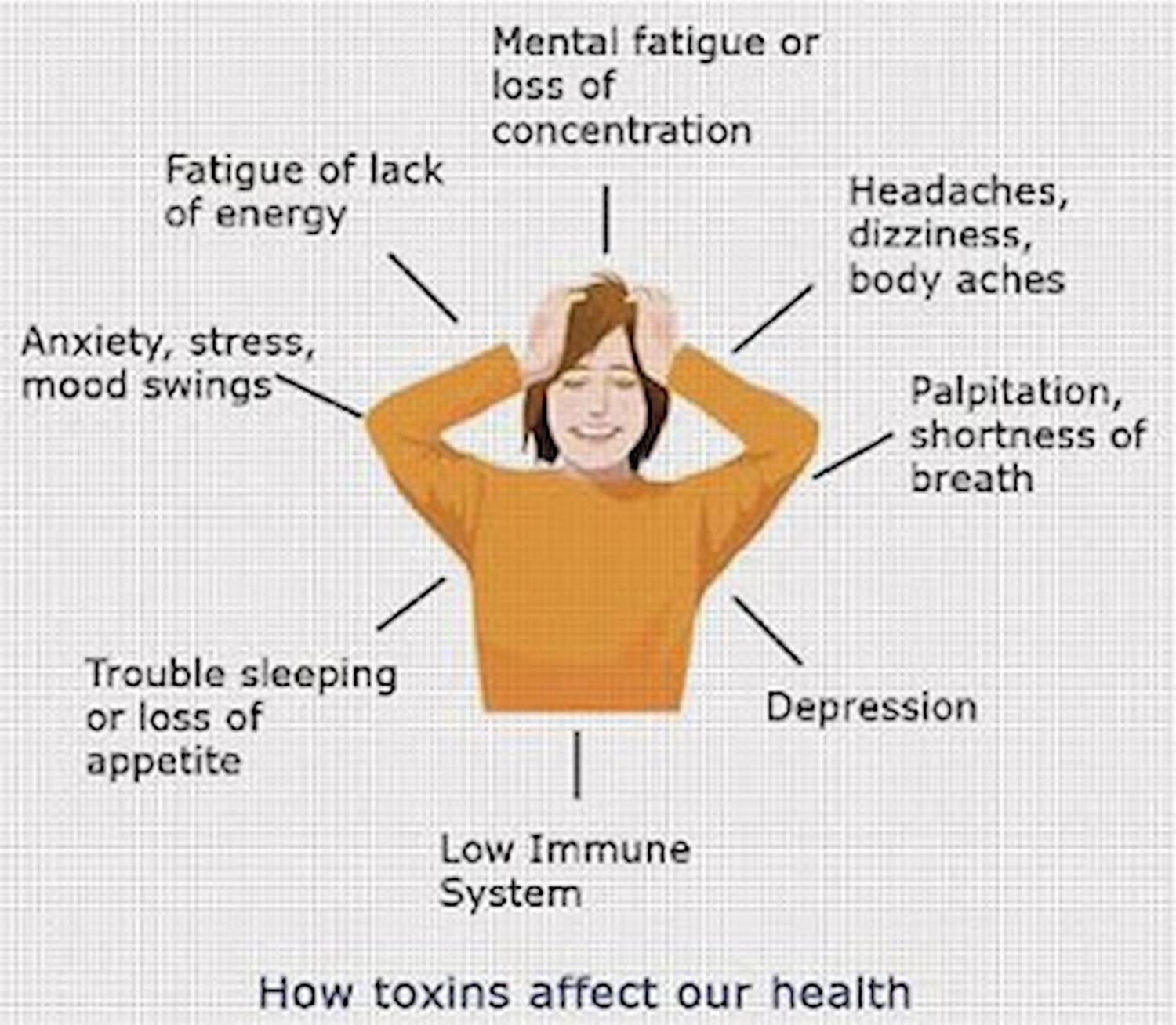
Toxins that are found in the air we breathe, the water we drink, the food we eat, and in the products we regularly use can wreak havoc in our bodies, eventually causing illnesses after prolonged exposure to them.
Lead emissions coming from fuel have been linked to a rising number of asthma cases in children. In high concentrations, lead can cause brain damage, seizures and death. Certain food additives have also been closely identified as triggers of hyperactivity in children, such as Attention Deficit Hyperactivity Disorder (ADHD).
Other examples of toxic elements that may be found in the environment are mercury, arsenic and cadmium. These and other toxic substances usually enter your body in small doses and begin to weave damage as they accumulate in your vital organs. By the time symptoms begin to show, irreversible damage may have already taken place in your body. Due to the prevalence of toxins in everyday life, early detection through reliable tests should form part of your health maintenance plan.
Testing for the presence of toxic substances becomes necessary when symptoms are not enough to determine the underlying cause of a health problem.
What is a Toxic Body?
A toxic body is one that contains toxic substances such as heavy metals, poisonous chemicals, harmful bacteria, parasites or others that produce lethal effects. Some of the most common causes of toxicity in the human body include:
- Side effects from prescription medications
- Alcohol abuse
- Smoking tobacco products
- GMOs (genetically modified organisms)
- Improperly prepared or processed foods
- Chronic exposures to toxic environmental pollutants
How Can You Tell if You Have a Toxic Body?
The signs and symptoms of a toxic body depend on the severity of the toxic overload, and also on each person's unique biology. However, some general symptoms may include:
- Chronic fatigue
- Feeling depressed for no reason
- Brain fog
- Headaches
- Loss of appetite
- Muscle pain or weakness
- Digestive problems
- Skin disorders
- Persistent infections
Certain toxicities may also lead to more serious conditions such as toxic shock syndrome, respiratory tract infections, abdominal pain, cancerous tumours, neurological disorders, such as Alzheimer's disease or Parkinson's disease, and malfunction of the immune system.

Source: DAILYTENMINUTES
How Can You Diagnose and Treat a Toxic Body?
Treatment options depend on the toxic overload. Before they can determine which approach to take in eliminating the toxins, health professionals rely on a battery of tests that fall under three types:
Blood Tests
Heavy metals and other toxins may be found in your bloodstream if exposure is immediate or chronic. Due to the changing nature of blood, however, a blood test is not helpful for determining prolonged exposure or detecting traces of toxins when exposure is not too recent. The procedure is also uncomfortable for those who have a fear of needles or whose veins make it difficult to obtain blood samples.
Urine Analysis
Urinalysis is a relatively inexpensive testing method that now comes in simple testing kits. While urine analysis may indicate the presence of heavy metals in a urine sample, it cannot show the actual level of toxicity of those metals in your body.
For a more conclusive analysis, provocation testing may be administered in conjunction with a urine analysis. In provocation testing, a detoxification agent is administered before a urine sample is obtained. This procedure can detect the presence of a toxic element and its positive reaction to the detoxification agent. The provocation sample is then compared to a baseline urine sample that was taken without a detoxification agent. Aside from provocation testing, some health professionals read the results of a urine analysis together with those of a hair analysis.
Hair Analysis
Hair tissue mineral analysis has been regarded as the most accurate method of detecting and measuring toxicity in the human body. It is the only method to date that is able to detect the presence of metals long after an actual exposure. As your hair grows, it may also serve as a good chronicle of chemical changes that take place inside your body over a period of time. Unlike a urine analysis, a hair analysis can be very expensive for testing the presence of certain metals.
Effective treatments for toxic overload range from detoxification diets to supplements targeted at helping remove certain toxins from the body. Herbs are another treatment option that can effectively remove toxins from the body while supporting other healthy areas of function throughout the body.
When it comes to toxic overload, prevention is always better than cure. For example, eating organic food whenever possible reduces exposure to pesticides. Similarly, consuming only filtered water helps avoid toxic heavy metals, while using toxin-free personal care products and cleaning up toxic spills safely reduces exposure to toxic chemicals.
What Foods Can Help Detoxify the Body?
All fresh vegetables and fruits are a great source of nutrients for maintaining a healthy body. Cruciferous vegetables such as broccoli, kale, cauliflower and cabbage contain glucosinolates, which have been shown to help detoxification enzymes do their job more effectively in the liver. Eating green leafy vegetables, beans and legumes, such as lentils, kidney beans and adzuki beans, can also help maintain a healthy, toxin-free body. All kinds of food that contain essential fatty acids are worth including in your diet as they can combat the adverse health effects of toxic substances.
In addition, these vegetables also supply powerful antioxidants known to protect the cells from damage caused by free radicals. High-fibre foods, such as bran or psyllium husks, can be helpful when taken with one cup of water before each meal to help remove toxic substances from the bowel. Certain herbs such as milk thistle, yellow dock and dandelion root can also be good at supporting the liver's detoxification pathways.
Herbal Remedies for Detoxification
There are many herbal remedies that can help the body remove toxic waste from the cells, tissues and organs. Some herbs, such as grapefruit seed extract, can be taken internally or applied topically to the skin. The most popular herbal remedies for detoxification include the following:
Milk Thistle
This is perhaps one of the most popular herbs used for detoxification because it has been shown to contain powerful antioxidants called silymarin that work together with other chemicals in this herb to protect both cell membranes and mitochondria from oxidative damage. In addition, milk thistle helps support healthy liver function by promoting normal flow of bile while also stimulating the formation of new liver cells.
Dandelion
Dandelion flushes out harmful toxins from the kidneys and the liver, which can potentially lead to liver damage or chronic kidney disease. Taking it regularly is believed to help prevent toxic overload and acute poisoning.
Schisandra
A type of berry that grows on a tree endemic to China, this Chinese herb is packed with antioxidants that improve liver function and increase the body's resistance against the harmful effects of any toxic substance.
Long-term Risks Associated With Having a Toxic Body
Having a toxic body is often an indication that the internal systems are struggling to cope with toxic levels of waste. If this condition persists over time, it can lead to serious health consequences, including weakened immunity, liver failure or cancerous tumours. It can also cause abnormal brain function resulting in chronic headaches, mood swings or mental illness.
The long-term exposure to toxic metals and other poisonous substances is associated with premature ageing, loss of muscle strength and stamina, and an increased risk for developing chronic diseases, including:
- High blood pressure
- Heart disease
- Fatty liver disease
- Arthritis
- Chronic kidney disease
- Cardiovascular disease
- Cancer
10 Tips for Maintaining a Healthy, Toxin-free Body
The real danger about toxicity is to assume that toxic overload can simply be resolved by fasting on water alone because this still leaves toxic substances free to circulate throughout the body. It is always best to eliminate toxins from your body under the supervision of a dietitian, an Ayurvedic doctor or a naturopath. Additionally, following these 10 detoxification diet tips will help you maintain a toxin-free body:
- Avoid toxic chemicals found in pesticides and herbicides by always going for organic food.
- Wash produce thoroughly before eating to reduce toxic chemical residue.
- Avoid synthetic fertilisers because toxic heavy metals are often used in their manufacture, leaving behind toxic molecules that easily pass into the root systems of plants or contaminate groundwater when they run off into lakes and rivers.
- Store your foods in glass containers rather than plastic, which can leach toxic substances into foodstuff.
- Avoid all processed foods since they contain added chemicals such as flavourings, colouring agents and stabilisers as well as toxic hydrogenated oils known to promote increased risk of coronary heart disease, obesity and cancer
- Abstain from fish that are high in mercury such as tuna, swordfish and shark. Chronic exposure to mercury can damage the body's immune and nervous systems.
- Avoid foods that contain high fructose corn syrup, which is found in prepackaged snacks and canned fruit juices and sodas, as well as deep-fried food, fast food and processed meats as they contain nitrates, which have been linked to increased risk for certain cancers.
- Add more fresh produce to your daily diet, particularly cruciferous veggies like broccoli and kale.
- Eat more probiotic rich foods such as yoghurt or kimchi. These offer nourishment for healthy gut flora, which is important as the gut contains a third of all immune system cells.
- Include lean proteins in your diet, such as salmon and free-range chicken, turkey, quinoa, lentils, beans, tofu and tempeh, because these contain glutathione precursors that help detoxify toxic substances in the body.
Toxins accumulate in the body when they are not eliminated through normal channels like urine, sweat and bowel movements. Rather than waiting for toxic substances to build up in your body, it's better to take these preventive measures or consult a natural health practitioner who can assist you.
Originally published on May 29, 2009








